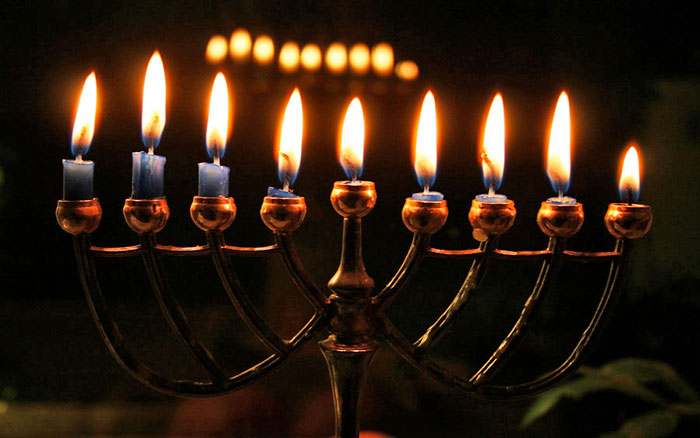Australia/Israel Review
The Last Word: Rights and a Wrong
Dec 18, 2015 | Jeremy Jones

Jeremy Jones
The Festival of Chanukah, which this year was celebrated in early December, has come to be identified with the concept of religious freedom.
In many communal and public candle-lighting ceremonies, this theme was dominant, with the right to worship freely celebrated and restrictions on this freedom condemned.
At the 43rd session of the Australian National Dialogue of Christians, Muslims & Jews, which met during Chanukah, the topic was “What Religious Freedom Means in Contemporary Australia.” After the Dialogue concluded, participants, in a demonstration of the living reality of this concept, celebrated Chanukah by lighting candles and enjoying donuts and potato latkes.
In the discussion, which looked at theological, historical and sociological approaches to religious freedom, participants noted both the way religious freedom is conceived within different religious traditions and also how it is lived out, each day, by women and men, in Australia.
The connection of rights and responsibilities, and the idea of specific rights potentially conflicting with each other, were discussed in a thoughtful, informed and constructive manner.
It was noted that the discussion was particularly appropriate as it was taking place on Human Rights Day (Dec. 10), and only hours after the annual Australian Human Rights Awards ceremony had concluded.
It was reasonable, if not inevitable, that both the Dialogue and the Awards ceremony included reference to bigotry, prejudice and vilification of people based on crude stereotyping and bigotry.
The spirit of genuine commitment to human rights at the Dialogue and the Awards ceremony, however, were not shared by an academic from the Fremantle Campus of Notre Dame University, in a posting on the human rights page of the London School of Economics (LSE) website.
In a screed which would not have been out of place in neo-Nazi propaganda the lecturer in Middle East politics defamed Judaism by depicting it as a faith steeped in racial superiority and one which rationalises and justifies inhumanity.
In a letter from AIJAC to the Vice Chancellor of Notre Dame we noted the author’s “anti-Jewish tropes relating to alleged, false, Jewish belief of superiority, depiction of adherents of Judaism as religiously-directed ‘ethnic cleansers’ and of Jews as ‘baying for blood’ have a long, undistinguished history.”
In what may be a first, and hopefully a last, an Australian employed as an educator had a link in her article to the notorious Journal for Historical Review, which “Reviews” whether or not a Nazi genocide of Jews ever happened.
It was difficult to discern whether the writer was trying to justify maximalist opposition to Israel through antisemitism, or justify antisemitism by distorted depictions of Israel’s policies and actions.
When alerted to the fact that an article which contained a number of vicious slurs, amounting to racial and religious vilification of Jews, had appeared under the signature of an academic at Notre Dame, the University made it known that the lecturer’s comments in no way represented the opinions of the University and were not endorsed or sanctioned by it. In correspondence with AIJAC, the University’s Vice Chancellor, Professor Celia Hammond, said that the University was disappointed and that the institution apologised for the offence the article had caused.
Reflecting the seriousness of the situation, she made it known that the University was addressing this issue in accordance with its standard processes.
The posting originally had the approval of moderators who have a responsibility to maintain minimal standards – and this should cause concern at LSE.
As one would hope, if not expect, after the article appeared a number of online commentators expressed disbelief that such a repulsive piece of pseudo-academic claptrap would be permitted to be associated with any institution which wished to be taken seriously.
After the authoritative Community Security Trust protested the post had given “a false and offensive caricature of Jewish law and religious beliefs” and the Board of Deputies of British Jews called on the LSE to delete it, the posting was removed.
However, the stain on the reputation of the institutions involved remains.
Tags: Antisemitism






